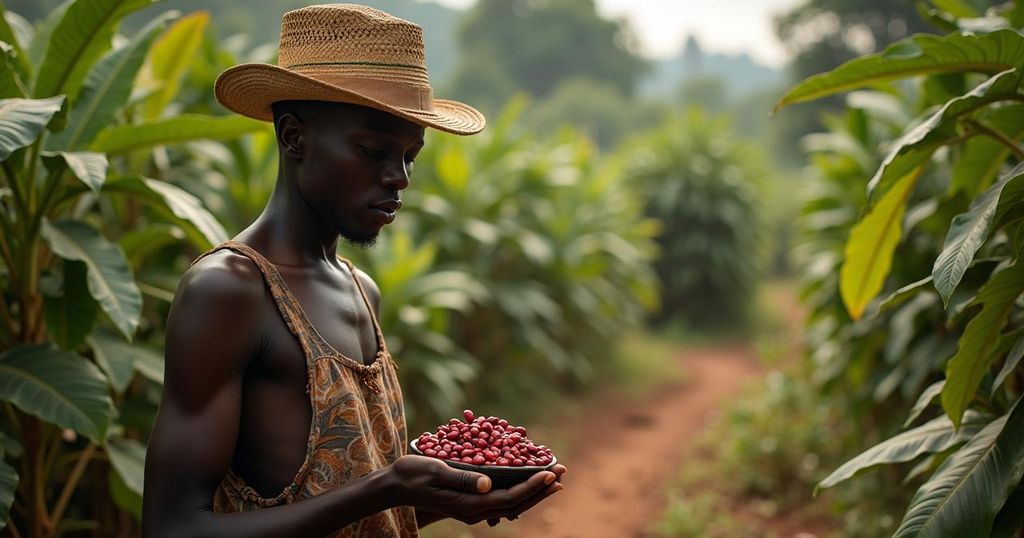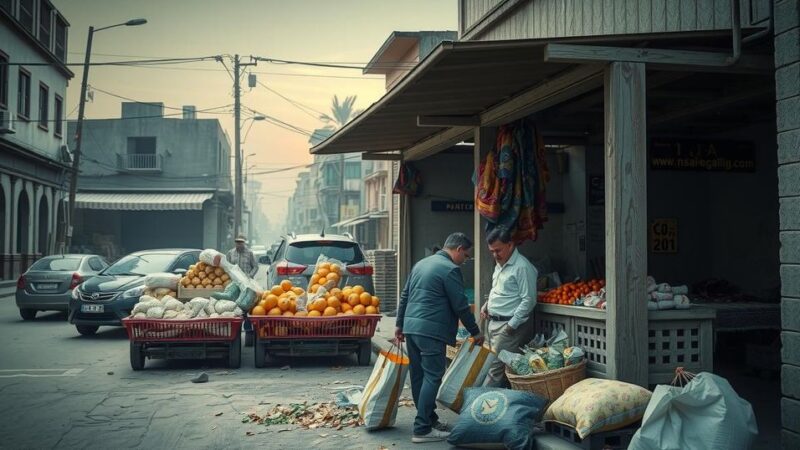The Democratic Republic of the Congo is witnessing a revival in its coffee industry, once decimated by conflict. With USAID’s assistance, coffee farmer cooperatives in South Kivu are enhancing production techniques and securing international buyers, leading to improved livelihoods and significant sales in the specialty market. The establishment of a coffee-tasting laboratory aims to further enhance coffee quality certification, solidifying the region’s reputation in the global coffee arena.
March 2016—The Democratic Republic of the Congo (DRC), once renowned for its vibrant coffee industry, experienced a significant decline in coffee production and export as a result of decades marked by instability and conflict. However, with global demand for specialty coffee soaring, the DRC is on a path to revive its once-thriving coffee sector and re-establish itself as a notable player among coffee producers. A key initiative, funded by USAID, has emerged in South Kivu province, where coffee farmer cooperatives are enhancing various aspects of coffee production, from harvesting techniques to market access and buyer engagement. Farmers are being educated on the optimal timing for picking coffee cherries, ensuring that they harvest at peak ripeness, which is critical for producing high-quality coffee. This expertise is integral in distinguishing high-value specialty coffee from lower-quality varieties and subsequently commands better prices in the international market. The results of these educational efforts are evident; cooperatives have successfully negotiated a pre-harvest financing arrangement with Westrock Coffee, which provides upfront payment to farmers at harvest time. In 2015, cooperatives from South Kivu showcased their exceptional quality at the DRC’s inaugural international coffee cupping competition, earning commendable rankings. Timothy Fella, a coffee buyer from Counter Culture Coffee, expressed enthusiasm, stating, “I am … trying to get my hands on as much of this coffee as possible, and I have no doubt there are buyers lined up trying to get it.” The cooperatives facilitated the sale of five shipping containers of fully washed coffee beans to notable U.S. retailers, including Starbucks and Counter Culture Coffee, branding the product as single-origin Congolese coffee. These initial sales signify the dawn of a promising future for these farmers, as higher prices lead local traders to offer better terms for their entire coffee output. Historically, farmers faced challenges in selling their coffee, often relying on risky exports to Rwanda via hazardous lake journeys. Constantin Kasikagwe Mukuba, a farmer from South Kivu, lamented, “In the past, we didn’t know how to sell our coffee. We could only sell it to Rwanda.” Thanks to the ongoing initiatives, the dangerous necessity for illegal exports has dissipated. USAID’s contributions also include establishing a coffee-tasting laboratory in Bukavu, the first of its kind in the region, aimed at certifying coffee quality and providing essential training for farmers. The facility is managed by the Office Nationale du Café, enabling government officials and coffee growers to master global coffee tasting techniques essential for reinforcing the industry’s resurgence. This revitalized coffee sector is made possible through the Kivu Specialty Coffee: Kahawa Bora Ya Kivu project, funded jointly by USAID and the Howard G. Buffet Foundation and implemented by entities such as Catholic Relief Services and World Coffee Research. The initiative, which commenced in 2012, focuses on improving the livelihoods of smallholder farmers, strengthening cooperatives as businesses, reforming government policies, and positioning Congolese coffee favorably within international markets. As farmers gain skills to attract buyers from various regions including the United States and Europe, there is a palpable shift towards professionalism and pride in their work. Mukuba states, “Now we have everything we need here. Thanks to the fields, I can educate my children. I can feed my family.”
The Democratic Republic of the Congo has a complex history regarding coffee production, being once a leading producer that succumbed to civil unrest and instability, which significantly hindered its agricultural capabilities. With a resurgence in specialty coffee demand, efforts funded by international bodies like USAID aim to revitalize this crucial sector, enhancing the skills and market access of local farmers. This initiative seeks not only to improve quality and output but also to provide economic stability and sustainability for the communities involved in coffee farming.
The revitalization of the Congolese coffee industry represents a significant moment for smallholder farmers in the Democratic Republic of the Congo. Through the support of USAID-funded initiatives, farmers are being equipped with essential skills and market knowledge that facilitates their success in international markets. This not only enhances their livelihoods but also promotes a sustainable agricultural sector within the country. As the historical struggles of the past yield to newfound opportunities, the prospect of Congolese coffee becoming a sought-after specialty product on the global stage is now a promising reality.
Original Source: www.usaid.gov






